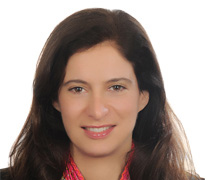I have always wondered why societies have historically underexploited the potential of 51 percent of their population and its consequent impact on the economy. Numerous studies show that participation of women in the workplace can boost the GDP of a country and the profitability of companies. Diversity creates value and wealth. And yet so many obstacles are still profoundly anchored in mentalities, habits, and traditions hindering the presence of women in many vital areas of the public and private sectors.
Some obstacles are measurable whereas others are hidden and unconscious. In a country such as Lebanon, women represent 56 percent of university graduates but only 25 percent of the workforce. If one looks more closely, one realizes that they are rarely present in upper management and their salaries are statistically lower as compared to their men counterparts. Similarly, they tend to be underrepresented in the entrepreneurial world and hold a very low percentage of market loans. How can this change when many men still consider a working wife a sign of his inability to provide for the family’s needs? Many women do not realize that this situation puts their family under an economic risk as the sole income of the family can disappear for more than one reason. What is even more surprising is that these mentalities are usually conveyed by mothers in childhood through transmission of unconscious biases and—even more dangerous—of conscious biases.
Should we wait for men to understand the benefits of empowering women, or should women realize that no major shifts will occur unless they become their own agents of change? I have personally opted for the latter and targeted one key obstacle women face: access to finance.
Building on a firm conviction that women represent a solid business opportunity, I have initiated and am managing a holistic program for female economic empowerment within the bank I work in: the WE Initiative. It is the first of its kind in the MENA region. With the support of visionary superiors and a solid consultant, IFC (International Finance Corporation), the program has been rolled out across all business lines. It caters for all women’s needs, be it financial, educational, or networking. This strategy has been very well-received by the market and is today one of our main differentiators. When women find someone who understands and supports them, they fly!







